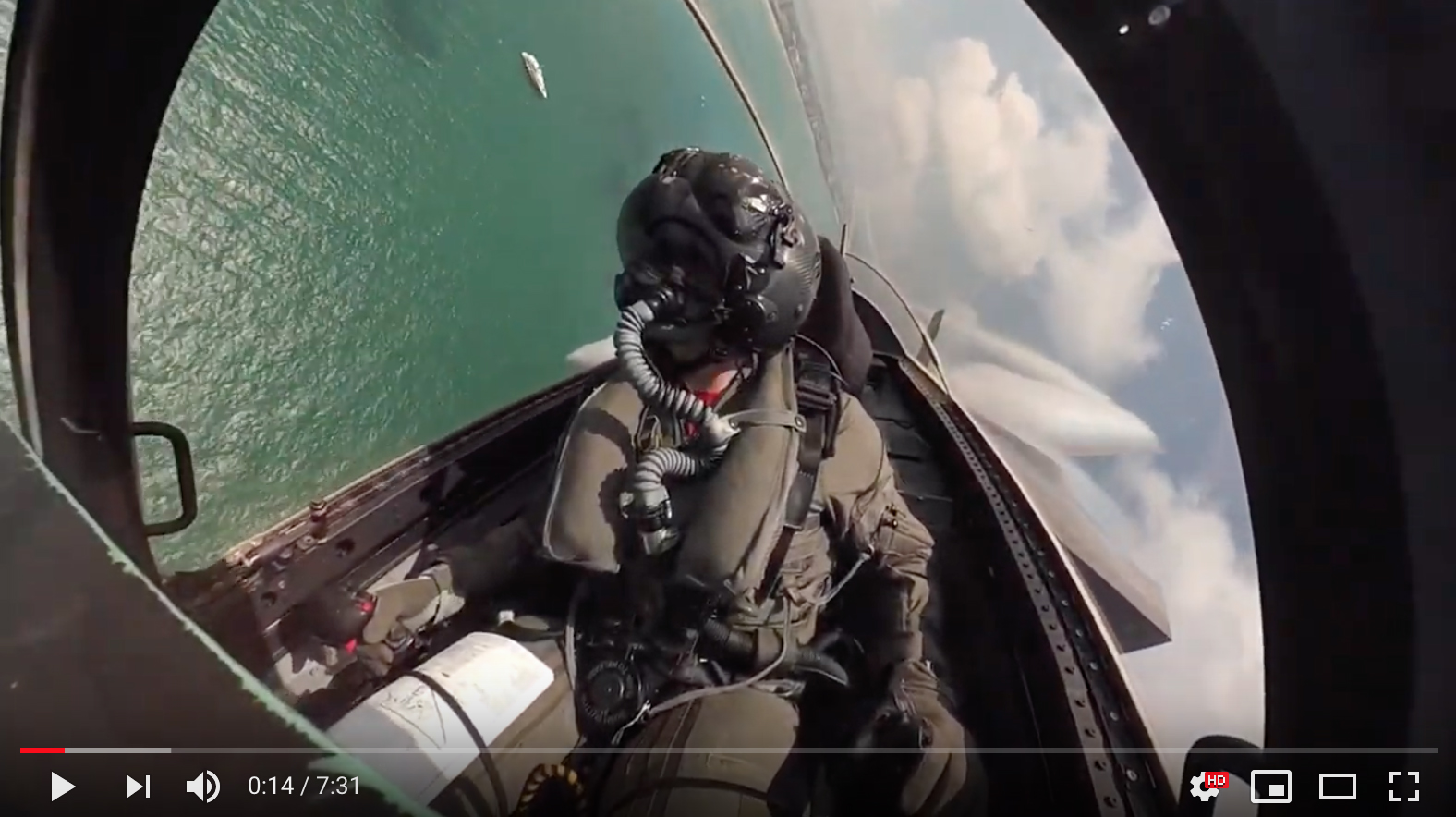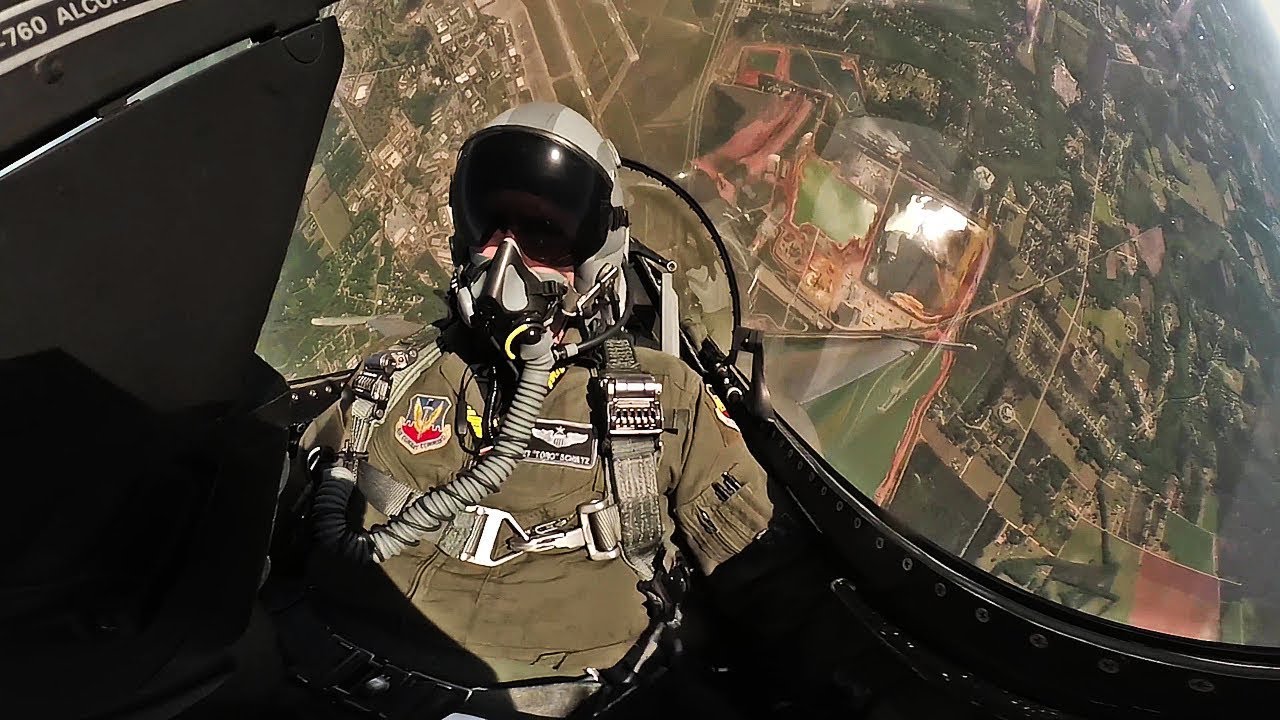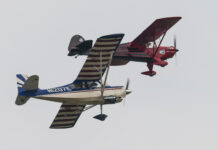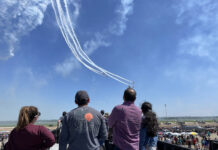Every 6.4 seconds, a new social media user gets online for the first time. The average social media user has seven accounts. And, every single day, people snap up billions of daily video views.
By this point, the advantages of integrating social media into your team, business, or air show probably makes sense. But what’s often harder to puzzle out is where you should invest your effort, especially if your bandwidth is limited.
We talked to show producers, pilots, demo teams, and others. We found Instagram is still a preferred platform, followed by Facebook. Video is king. And there are new players to contend with on the horizon.
“You have to hit both Facebook and Instagram,” said Adam Baker with playfulairshows.com. “But Facebook is older. Pictures obviously work great for Instagram, but a good video will catch their attention while they’re scrolling. I’m also seeing people move away from longer videos, like what you might see on YouTube. They want it short. So, I make them a minute or less unless it’s a year-end or instructional video. Those, I still put up on YouTube.”
Baker believes using social media to reach fans is no longer optional, and he regularly encourages his peers to stay on top of their accounts. “It’s not an age thing. It’s a willingness to get on that learning curve. That said, it’s okay to walk away from it if it doesn’t work for you. But, if you can’t do it, find someone who can,” said Baker.
“It doesn’t have to be me,” said Kevin Walsh, Event Director for Thunder Over Michigan, who regularly partners with photographers and others to provide content during his air show. “Bringing in experts pays dividends. I help establish the high-note rules, but rely on my team to handle the day-to-day when the show is underway, so I can focus on other things.”
The photographers he partners with are adept at social media, so he gives them publishing rights, allowing them to quickly contribute incredible imagery. “When I finally have time and look back after the air show, I am always blown away. It’s representation that you never knew could be done,” said Walsh.
If the goal of social media is to be, in fact, social, then it’s important to think in terms of where the conversation is actually happening, not necessarily where we wish it was. Enter TikTok. While ICAS necessarily offers content at its annual convention designed to help people maximize mainstream platforms like Instagram and Facebook, the reality is the social media landscape is evolving.
TikTok is a Beijing-based social media platform that combines music, sound effects, filters, relatively sophisticated baked-in editing, and other features that allow users to generate short-form content. It’s similar to the old Twitter-owned Vine, but with more bells and whistles. And thanks to some strategic acquisitions, it is successfully marching on the US market.

In the iOS app store, it was the most downloaded social media app on the planet in 2018, outpacing Instagram, Facebook, and waning channels like Snapchat. Brands have been slow to figure out how to engage because — unlike the pay-to-play models for Facebook and Instagram — TikTok is still fully organic.
In terms of demographics, TikTok does not follow normal rules; it’s quite popular with middle schoolers and kids younger than allowed by its own Terms of Service, but also with young 20-year olds and people in their forties. There is a downturn in popularity in the 30-year old set, albeit slight, and likely driven by an equal uptick in that demographic for Instagram. What this means for the air show community is the acknowledgement that there is already a robust conversation happening around air shows and aviation on TikTok, as witnessed by nearly 50-million views of the hashtag ‘air show’ on the platform. The embedded video shows some of the posts involving air shows, and teams like the Thunderbirds, Blue Angels and more. TikTok is an emerging platform worth keeping your eyes on.
“We’re a fifth-generation fighter, so we need a fifth-generation social media strategy,” said Senior Airman Alex Cook who is the F-35 demonstration team public affairs specialist. “We’re always looking at how best to utilize emerging platforms, as well as maximizing what’s already working.”

Perhaps the best example of that is the team’s Instagram page which works in tandem with the personal account of demonstration pilot Captain Andrew “Dojo” Olson.
“We think of team accounts as the hub, and a pilot account compliments that with more technical detail and flying-related aspects of what we do,” said Olson.
The team spent months working tirelessly through security approvals to get in-cockpit footage which they then post to their Instagram stories and page, as well as the longer-format friendly IGTV recently introduced by Instagram.
“It was nine months in the making, but it came after years of ‘no.’ The Air Force has absolutely come around and seen the value of this kind of footage,” said Olson, who also credits work by the F-16 Viper Demo team under Major John “Rain” Waters as one of the success stories that grabbed the attention of Air Force leadership.

“Launching the in-cockpit footage on Instagram has been a game changer,” said Olson. “The people who were in our corner are chest-thumping because they always knew what the F-35 could do. The people who weren’t in our corner are where we’re making the greatest strides. They routinely comment that they had no idea the jet could do that. And that’s not even the tip of the iceberg. We’re flying air shows in a combat configuration, unlike anyone else, with combat fuel loads that allow us to fly for hours. And while much of what we talk about in social media and in our narration focuses on the combat scenario of dogfighting, that’s really a contingency. The F-35’s true strength is we’re lethal well beyond visual range; in other words, they don’t know we’re there until it’s too late for them. Social media lets us explain that.”
Senior Airman Cook echoed the sentiment, “People are learning about the jet and its ability as a stealth fighter in a way they never could before. We gained 30,000 followers in the last six months. Our preferred and most popular platform is Instagram because we find it has the best reach.”
Olson agreed, “It’s the platform that offers maximum content with minimum clutter.”
“We’re excited by the compelling ways the F-35 Demo team is engaging the public,” said Carolyn Nelson, Lockheed Martin Director of Integrated Fighter Group Communications. “There is nothing more powerful than watching the F-35 demo in person at an air show, but the Air Force’s social media approach helps bring the experience to millions more. It’s a world-class demo amplified by a world-class social media effort,” said Nelson.
“It’s part of the job,” said Major Garret “Toro” Schmitz, the incoming pilot for the F-16 Viper Demo, who also has a personal account in addition to the team account. “Our job is to communicate what the Air Force does. Social media is cheap, widely accessible, and most importantly it’s the way people communicate. It’s not optional anymore,” said Schmitz.
—
#BreakoutSession
Research your hashtags, especially on Instagram. Use of certain hashtags, even innocent ones like #HappyThanksgiving, can lead to Instagram shadow-banning you (essentially hiding your content from IGs “explore” feature and reducing the likelihood your post will show in anyone’s feed).
Tools to put your hashtags to work for you:
- Ritetag.com
- Available for iOS and Android
- About $4/month and provides instant hashtag suggestions based on real-time data.
- Hashtagify.me
- More expensive, more powerful, but subject to updates every time Instagram modifies its API (application programming interface).
- $19/month and provides relevant hashtags in real time and trackers to keep tabs on the conversation, especially among influencers.







